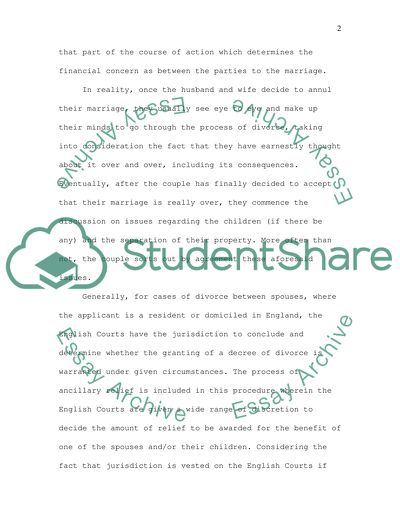Cite this document
(“Is the English Law on Ancillary Relief Defective Essay”, n.d.)
Retrieved from https://studentshare.org/miscellaneous/1520418-is-the-english-law-on-ancillary-relief-defective
Retrieved from https://studentshare.org/miscellaneous/1520418-is-the-english-law-on-ancillary-relief-defective
(Is the English Law on Ancillary Relief Defective Essay)
https://studentshare.org/miscellaneous/1520418-is-the-english-law-on-ancillary-relief-defective.
https://studentshare.org/miscellaneous/1520418-is-the-english-law-on-ancillary-relief-defective.
“Is the English Law on Ancillary Relief Defective Essay”, n.d. https://studentshare.org/miscellaneous/1520418-is-the-english-law-on-ancillary-relief-defective.


